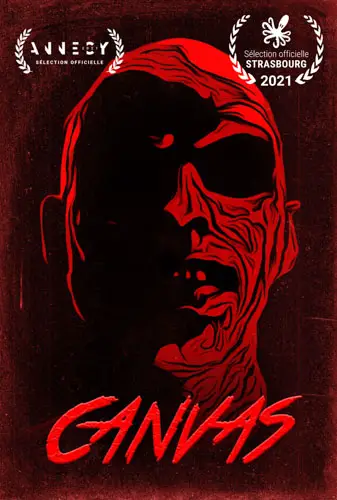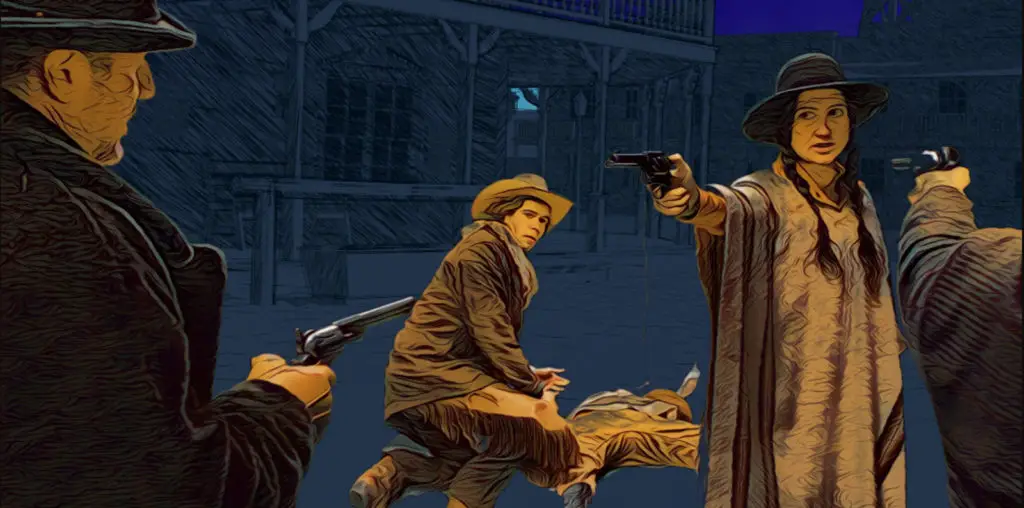
There is a lot of brilliance in writer/director Ryan Guiterman’s Canvas, but it has to be balanced against a lot that is amateur or limited. The animated horror offering kicks off with nice, anime-style credits, seemingly aimed at placing this within that tradition. It hews to similar plot points, featuring an invasion by a lurid and otherworldly force known as The Painter (Ell Peck) and showing an alienated and technology-saturated future.
George Rohan (Steve Key) is an FBI investigator for the shadowy Painter Defense Agency. He’s tasked with keeping the true plans of The Painter to hatch demonic spawn a secret. Reila Martin (Isabel Ellison) is committed to uncovering the truth about the entity. Their stories have the strength of automatically establishing a living political backdrop where the machinery of the state masks the implications of alien contact and where every public space is adorned with PDA logos and looks like something out of 1984.
The presentation of Canvas is lovely. Guiterman deploys an arsenal of visual tricks to tell his story. The use of rotoscoping, in particular, finds a more valid expression here than in Linklater’s work. It is put to perfect use as a concealer on the seams and shadows of the reality of how the film was shot. The animation creates a viable sci-fi future, rendered beautifully at indie prices.

“…tasked with keeping the true plans of The Painter to hatch demonic spawn a secret.”
The story does a great job of merging the strengths of cinema and comic books. For a potboiler about a bloodthirsty demon on a quest to inseminate, it plays more ingeniously with the frame than any film I’ve seen. This makes the whole experience shimmer and twitch as if contaminated in some way by the force within.
To pinpoint the biggest shortcoming of Canvas, one only has to appreciate one of its best inventions. The Painter addresses us in a heavily modulated and sinister Latin, subtitled in English. We pick up much and yet nothing from these passages. The thing is ancient and ambivalent, with little to relate to us. The subtitles make its cryptic statements lucid, at least. The parts with the human protagonists are almost impossible to make out. They act within the confines of video-taped confessions or scenes where the rotoscoping makes pretty but indistinct use of them and can lessen the impact of the drama.
The performances trundle on for minutes with just a static, heavily filtered medium-long shot to get by. This is a pity because there is some real zest from the actors. There are similar problems with how the sound is presented. A lot of the dialogue is buried beneath some (very nicely chosen) classical music. There are definitely stretches where a lack of resources starts to show, but then that does help to remind you how sharp and stylish the rest is.
Canvas is an impressive example of zero-budget independent film with a distinct and satisfying mix of sci-fi and horror elements. Its presentation is deeply inventive. It switches from nicely flat scenes of a stark and unnatural world to trippy abstraction with ease. Even if I found the plot hard to decipher or care about, I kept watching regardless, engrossed throughout.

"…[uses] its wits to tell a story..."


